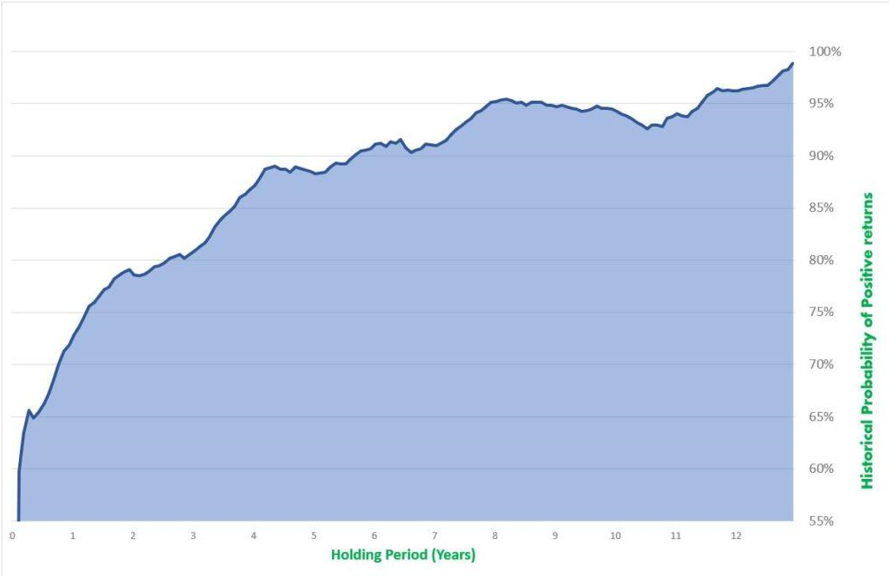Being proactive with your money is the key to expanding your wealth and securing the lifestyle you want in the future. This is especially true when the rate of inflation is high – 10.4% in the year to February 2023, the Office for National Statistics (ONS) reports. As a result, savings account interest rates may not be keeping up, and your money could be losing value in real terms.
Fortunately, investing can be hugely beneficial as, compared with the interest earned on cash, the returns you could see may shield your wealth from the effects of inflation. There are many different types of investments to fit varied financial goals, so you have plenty of opportunities to potentially grow your wealth.
However, a study from Finder revealed that only 2 in 5 Brits are investing in 2023. They also found that younger people are more likely to trust this process, with 60% of Generation Z and 54% of millennials saying they invest their money.
This is compared with only 37% of baby boomers, which means that while the younger generation are becoming more financially aware, many people approaching retirement age are potentially missing out on opportunities to build capital.
The study also demonstrated that only 32% of women invested compared with 52% of men.
The reasons for not investing naturally vary from person to person. However, many people don’t feel confident with investments due to a lack of financial literacy. A 2022 study published by the World Economic Forum found that 40% of people said they did not invest because they simply don’t know how. Additionally, 70% of people said they would invest if they had more in-depth financial education.
Indeed, investing may be a blind spot in your financial knowledge, and this could have given voice to some common myths that may discourage you. The good news is, when you dispel these myths, you can make evidence-based decisions about your wealth.
Here are three of the biggest investment myths that could be preventing your wealth from meeting its potential.
1. “I don’t have enough money”
One of the biggest misconceptions about investing is that you need to inject a large amount of capital upfront. Indeed, according to Yahoo News, 42% of people say that they don’t invest because they don’t have enough money.
But the reality is, you don’t need to be incredibly wealthy to benefit from investing. For instance, many Stocks and Shares ISAs have a minimum monthly payment plan of around £25.
Over the course of a year, this is equivalent to, or even less than, what you might spend on luxuries like streaming services or meals out. Plus, you can usually make additional contributions whenever you like (within the total annual subscription limit, which stands at £20,000 in 2023/24).
Even if you are only putting what you would consider a small amount into a Stocks and Shares ISA each month, you are still building investments that may generate positive returns in the future. Crucially, the earlier you start making these contributions, the more you can build up.
You can also invest outside of a Stocks and Shares ISA without needing a large downpayment. General Investment Accounts (GIAs) can be a great tool for first-time investors, for instance. If you want to get started on your investment journey, it could be helpful to consult a financial planner first.
2. “Investing is too risky”
The money you put aside for later life contributes to your future security, so it is natural to be cautious with it. That’s why many people choose not to invest because they believe that it is too risky.
But, while investments can carry risk and you could potentially lose wealth, there may also be potential for growth if you invest over the long term with clear goals in mind.
The myth that investing is too risky is usually based on a short-term view. Markets fluctuate, so over a period of just a few years, you may see losses. But the longer your money is invested, the more likely you are to see positive returns.
Indeed, a study by Nutmeg demonstrated that if you were to randomly choose a day between January 1971 and July 2022 and invest your money for 24 hours, your chances of making a profit were just 52.4%. However, as you increase the period of time that your money is invested, the chances of making a profit also increase.
Investing for a year would have generated a profit 72.8% of the time, and investing for 10 years gives you a 94.2% chance of success.
As you can see from the graph below, the chances of returns on your investments may increase the longer you hold them, and the risk of losses may diminish.

Source: Nutmeg
So, while past performance doesn’t guarantee future returns, investing over the long term may not be as risky as you think.
It is also important to note that holding your wealth as cash savings is not necessarily risk-free. That’s because, during a period of high inflation, there is a chance that your savings could lose value in real terms, as the rate of inflation may be higher than your interest rate.
3. “I don’t have time to do all the research involved”
The world of investing can be overwhelming for a newcomer. There are many different types of investments to choose from and a good portfolio should be built with your own unique life goals at the centre.
Before investing in anything, it may be a good idea to do thorough research to ensure that your chosen investment aligns with your goals. Key things to consider include:
- Different asset classes, such as stocks, bonds, and funds
- The level of risk you are willing to adopt
- The ideal timescale for your investments based on your future life goals
- The Environmental, Social and Governance (ESG) credentials of the investments you’re making.
It is important to do this research so you can find investments that suit your attitude to risk and your overall financial plan. But we all live busy lives and you may feel that there are simply not enough hours in the day to stay informed.
Fortunately, working with a financial planner may negate this potential downside of investing. We can use our years of market experience to advise you about which investments may suit your plans. Before recommending any investments, we perform due diligence, providing you with peace of mind as you build your portfolio.
Ultimately, the value you could gain from an experienced financial planner nurturing your portfolio could be more than you expect, and having a professional manage your investments may help to alleviate some of the fears you have about investing.
Get in touch
If you want to explore your options for investing and learn more about the potential benefits, please get in touch. Email us at [email protected], or call 01273 076 587.
Please note
This blog is for general information only and does not constitute advice. The information is aimed at retail clients only.
The value of your investments (and any income from them) can go down as well as up and you may not get back the full amount you invested. Past performance is not a reliable indicator of future performance. Investments should be considered over the longer term and should fit in with your overall attitude to risk and financial circumstances.







